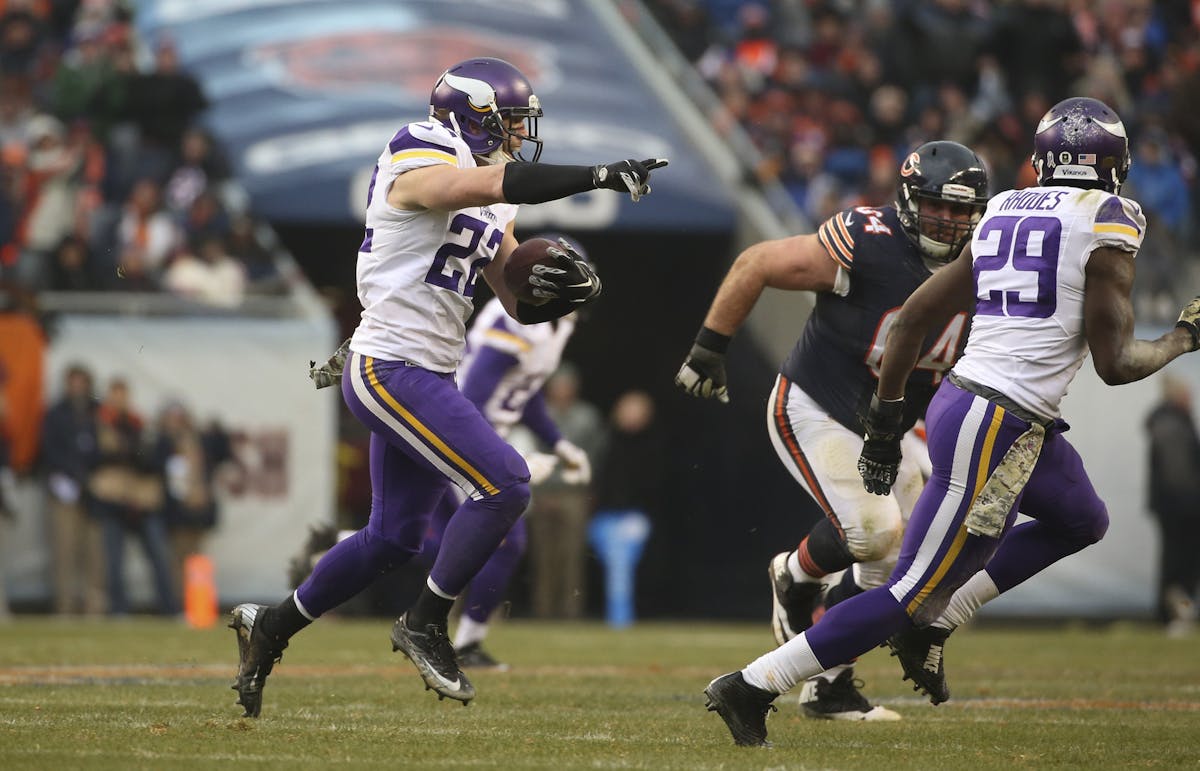How to stop the Green Bay Packers offense is a question more suitable for a Western philosopher than an NFL head coach these days.
The Vikings defense would know about as well as any team in the league. It spent this week dissecting the 42-10 loss at Lambeau Field during Week 5.
As Socrates said, "Know thy self."
"Anytime you play somebody a second time you have some things that you would change up or you're going to change up, and I'm sure they feel the same way," Vikings coach Mike Zimmer said.
What won't change will be Zimmer's philosophy on how to attack an offense on Sunday. The main priority won't be stopping quarterback Aaron Rodgers, as many would expect. It'll be stopping the running game.
The Vikings couldn't slow the Packers ground attack in their first matchup, allowing 156 rushing yards in the blowout. Running backs Eddie Lacy and James Starks plowed right through defenders in purple, particularly safety Robert Blanton. Lacy trucked his way for 105 rushing yards, which still stands as his season high. That doesn't suggest that the Packers have struggled to run the ball in recent weeks, however. They're averaging 4.1 yards per carry over the past five games.
"I think they've really done a nice job of running the ball," Vikings defensive coordinator George Edwards said. "We've got to do a good job of tackling, which we didn't do last week. We know coming into this game and after playing these guys the first time that you've got to do a good job of tackling Lacy."
Lacy is one of three running backs to eclipse 100 rushing yards against the Vikings defense. The latest occurred last week, when Matt Forte of the Bears ran for 117 yards. Tackling issues in that game were similar to those the Vikings had against Lacy, who was relentless fighting for extra yards.
"It's difficult because they do a good job of creating holes for [Lacy] and [Starks]," safety Harrison Smith said of the Packers. "Those guys are good backs, very hard to bring down. So you might have a play fit up right and the Lacy will fall forward for 6 yards when it should've been no gain. You've got to get multiple guys to the ball."
Smith said Lacy fell forward for extra yards a few times in their first matchup to help extend drives in a game which the Vikings were down 42-0 after three quarters. The Packers exploited the middle of the Vikings defensive line, running right through the "A" gap, leaving nose tackle Linval Joseph with an unsatisfying taste of his first Packers-Vikings rivalry matchup.
"Last time I didn't execute the way I wanted to execute, and I didn't help the team the way I should have," Joseph said. "I feel like this game I want to make sure I do well with my technique and give my team the best opportunity to make plays."
Zimmer said what makes the Packers difficult to scheme against and make one-dimensional can be their unconventional play calling. They can pass six consecutive plays, or hand it off for four straight plays.
"They keep you off balance that way," Zimmer said. "And their offensive line does a good job in both phases. Both of the backs are good backs, good cutback guys, good downhill run guys and then dealing with Rodgers is a separate issue."
The Vikings would like to focus on Rodgers during third-and-long situations so they can allow their pass rushers to pressure one the best quarterbacks in the NFL. It's what Zimmer has stressed since he arrived to the Twin Cities — stop the run first, then rush the passer.
The concept, as clear as Socrates' philosophies, will be difficult to execute against the Packers, as the players are well aware.
"In certain games, if you don't do good, just like anything in life, it's going to bother you a little bit," Joseph said. "We play them again and see it on film. I know what I need to work on this week."

